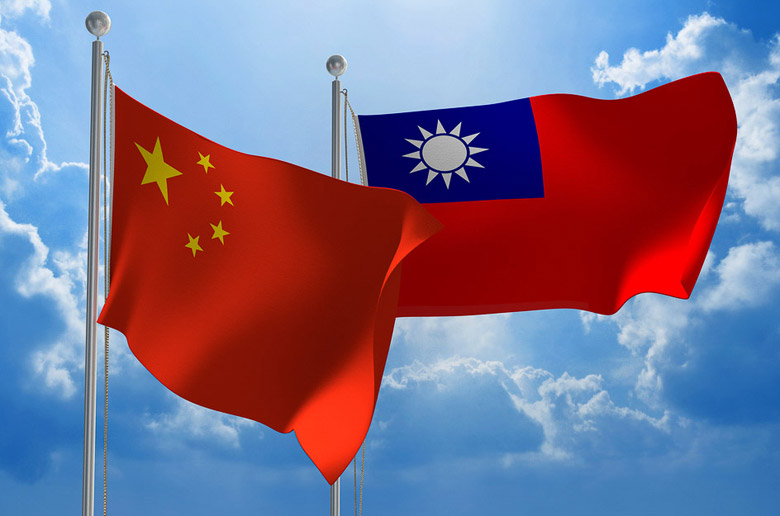Taipei rejects Beijing
February 8, 2018 | Expert Insights

In the aftermath of a massive earthquake that left 8 dead, Taiwan has rejected Beijing’s offer to send across a rescue team to aid in the relief efforts. This is the latest development in the complicated relationship between Taiwan and mainland China.
The ties between the two regions has further soured in the recent months.
Background
Taiwan is an island, which is a highly controversial region in Asia. While Taiwan is considered a province in “Greater China,” it is largely an independent state. The ambiguity can be traced back to 1927, when the seeds were sown for a civil war between Kuomintang (KMT)-led government of the Republic of China, and the Communist Party of China (CPC). Both parties wrestled for control for China. While the civil war lasted between 1927 and 1950, the main phase is considered to be from 1945 to 1949.
The war came to an end when CCP captured Beijing. The leader of CCP, Mao Zedong, then officially declared the formation of People’s Republic of China. The leader of the opposing faction, Jiang Jieshi fled to Taiwan. It is here that he declared the formation of Republic of China (ROC). PRC has repeatedly used the threat of force to ensure Taiwan (ROC) never declared independence. As far as mainland China is considered, Taiwan is a rebel force well within China.
Despite the controversy that surrounds Taiwan, the region itself is economically robust and it is one of the biggest traders in Asia. It is a leader in the field of computer technology. And the province pursues independent informal relations with other countries.
It’s most influential friend in world politics is USA, which has supported it for years while also adhering to the “One China” policy.
On March 8th 2017, China’s foreign minister declared that there is only ‘One China’ and Taiwan is a part of it. Taiwan plays an inalienable part of the ‘One China’ policy in expectation that it will be reunited with the mainland. Having said so, Taiwan has a democratically elected President, laws and its very own armed forces. A major fallout could be the break in economic trade and foreign relations.
During the national party congress, Chinese President Xi Jinping spoke about safeguarding national sovereignty and directly addressed Taiwan. He said, “[We will] resolutely safeguard the national sovereignty and territorial integrity and will absolutely not tolerate the tragedy of the country’s split. Any activity aiming to split the motherland will be firmly opposed by all the Chinese people. We have a firm will, sufficient faith, and adequate capacity to defeat any intention of “Taiwan independence” in any form. [We will] never allow any person, any organization, any political party, at any time, in any form, to separate any piece of Chinese territory from China.”

Analysis
On February 2018, Taiwan was struck by one of the most powerful earthquakes the region has witnessed in recent history. A magnitude 6.4, the death toll has increased to 8 people and countless more are injured or reported missing. The area has also witnessed large scale property damage with many trapped within buildings. In addition, dozens of aftershocks have continued to hit the area in the aftermath.
China's Taiwan Affairs Office (TAO) spokesman An Fengshan said that Beijing will send Taiwan disaster relief aid. China also offered to send across a relief team to work on rescue efforts. Even though Taiwan might be taking the aid, it refused China’s offer of a relief team. The region at the time simply noted that it wasn’t in need of manpower. The refusal happened just hours before Taiwan experienced a second large earthquake, whose magnitude was 5.7. The second quake struck at the same point as the first, at a depth of 11km (6.8 miles), according to the US Geological Survey.
Beijing’s offer to help comes during a particularly tense period between the two regions. “At the moment, we have adequate manpower and facilities in support of the rescue operation,” said Chiu Chui-cheng, vice-chairman of the council, which takes care of mainland policy. “We deeply appreciate their offer, but so far we are not in need of their help.”
Asked if this was a missed opportunity to break the ice with Beijing, Chiu said: “Basically it is a natural disaster and the rescue involves humanitarian efforts. They shouldn’t be used as [a bridge] for political connection.”
Wang Kung-yi, a political science professor at Chinese Culture University in Taipei said, “The Tsai government is unlikely to do anything that might be seen as a compromise over the dispute, such as agreeing for Beijing to send a rescue team to Taiwan. Besides, the authorities can cope with a disaster of this scale, which is relatively small compared with the devastating earthquake that killed more than 2,000 people in Taiwan in September 1999.”
Assessment
Our assessment is that it is unsurprising that Taiwan has refused mainland China’s offer to send across a rescue team as the relationship between the two regions has become particularly contentious in the recent months. Beijing has noted that it would be willing to use force in order to ensure the re-unification of China. However, with lives still at stake, it would perhaps be prudent to accept any help readily available.








Comments